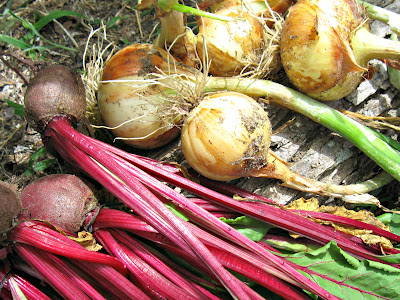I love to garden. It’s in my blood! My grandparents gardened on their farm and my mother grew the majority of our vegetables and canned every summer when I was a kid. Now I’m trying to get back to my roots and live more healthfully by providing my family fresh fruits and vegetables from our back yard. I’ve been at it for a few years now and, until recently, I haven’t had a bumper crop of well…anything.
Why? I never tested my soil!
I thought just adding some 10-10-10 and compost to anything I planted {vegetable, grass, fruit or flower} was enough to produce food that would feed an army. I have been wrong in so many ways.
Did you know that Brussels sprouts need a different fertilizing schedule from okra and neither like exactly the same thing as blueberries? I certainly didn’t. Not at first, anyway. There are many nuances for each type of vegetable, fruit, grass, and flower you grow and paying attention to these specific needs will benefit you when you expect home-grown dinners in mid to late summer.
 A soil sample, if collected properly, will provide you with a plethora of information regarding your soil. The results will provide you with what and how much fertilizer to add {if any!} and in what frequency for the type of vegetable, grass, fruit, tree, shrub, or flower you are growing. There are even tests for more than home gardening. Commercial crop producers, greenhouses and nurseries, and turf management specialists can all submit soil samples and receive beneficial information on how to maximize their harvests.
A soil sample, if collected properly, will provide you with a plethora of information regarding your soil. The results will provide you with what and how much fertilizer to add {if any!} and in what frequency for the type of vegetable, grass, fruit, tree, shrub, or flower you are growing. There are even tests for more than home gardening. Commercial crop producers, greenhouses and nurseries, and turf management specialists can all submit soil samples and receive beneficial information on how to maximize their harvests.
So who provides soil testing services? I’m sure there are private labs that provide soil testing services, but the Virginia Cooperative Extension (the educational outreach program of Virginia’s land-grant universities, Virginia Tech and Virginia State University) does provide this service. According to their website, “a routine soil test package includes analysis for soil pH, P, K, Ca, Mg, Zn, Mn, Cu, Fe, and B, along with fertilizer and lime recommendations for the specified crop. Soluble salts and organic matter tests are also available.” The turn-around for testing and soil recommendations is usually within 3 working days of receipt of the soil sample. And a routine soil test is only $10 for in-state residents! You can’t beat service like that for the price.
For me, spending $10 for a routine soil sample is worth losing the frustrations and guessing games {and many times, the wastefulness!} of applying fertilizers and hoping to see a benefit. Think of it this way – a soil test is like a health checkup. You wouldn’t take antibiotics if your doctor didn’t say you needed them, so why fertilize your lawn and garden without checking to see if they need any first?
For more information on submitting soil samples to the Virginia Cooperative Extension, visit their website at www.soiltest.vt.edu. Extension offices in many cities and counties throughout Virginia can provide you with the sampling boxes and information sheets that you need to include with your sample. Happy gardening!
Article written by askHRgreen.org committee member Erin Belt, Environmental Programs Manager, Isle of Wight County